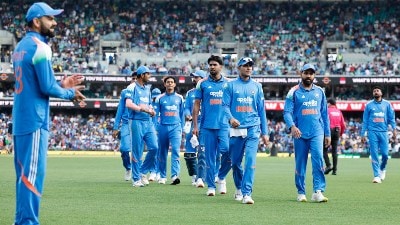It146;s a big deal
If the government drags its feet further in going to the IAEA and signing the 123 agreement with the US...

If the government drags its feet further in going to the IAEA and signing the 123 agreement with the US, it will leave India technologically crippled. India will be caught in a series of vicious cycles. First, it will be denied dual-use technologies, which are required for civilian use but can also be diverted for military purposes. Second, the shortage of uranium is already having an adverse impact on our nuclear plants. Third, unless uranium in large quantities is made available over the long haul, it will be impossible to leverage India8217;s abundant thorium reserves, which can be used to substitute uranium imports. If these vicious cycles are not broken there will be roadblocks in multiple fields of technological advancement. As it is, since 1974 we have been 8216;nuclear pariahs8217;. Here is an opportunity to come out of this situation, which appears to be slipping away.
A number of distinguished lawyers have explained that the 123 agreement is governed by international law and overrides the Hyde Act which is a part of US domestic legislation. Their words seem to have had no influence on those who have made the Hyde Act a bugbear. The truth is, if Bush does not see this agreement through during his tenure there will be two possible outcomes. In the event the Democrats come to power they will force us to sign the NPT. This will mean that we will have access hitherto prohibited technologies only if we undertake not to conduct further nuclear tests. If, however, the Republicans come to power, the deal will have to be renegotiated and getting the present terms is fraught with uncertainty.
We are therefore back to the question of why getting this deal through has become such an uphill task. Brajesh Mishra, a greatly respected adviser to Atal Bihari Vajpayee, has changed his position and now supports the deal. More significantly, Dr Abdul Kalam has spoken in support of this deal. Hence, it is hard to understand why Advani and Vajpayee have turned their back on the fruits of their own earlier initiative.
The Left sadly suffers from two afflictions; one, being prisoners of a defunct ideology and the other, being blind to China making rapid strides in developing a nuclear arsenal which has become a mighty force on land, in the air and in the oceans. They already have a triad in position whereas we are reduced to debating it. Further, the China-Pakistan link has placed India in an unenviable situation of having to deal with two major adversaries with its hands tied behind its back. How therefore do we escape the conclusion that the Left has divided loyalties? It has been suggested that since the Left is opposed to the deal in its present form but has no objection to civilian nuclear trade with Russia and France, India should proceed to sign the IAEA safeguard agreement so that it can get a clearance from the NSG. This of course, could be made imperative by the Bush Administration if it decides that no trade with the NSG countries can take place unless the 123 agreement is signed.
What are the gains and losses in confronting these dilemmas? The gains are clear. If we sign the nuclear deal we will have an arrangement with the US as well as the 45 countries of the nuclear supplier group, which is superior to China8217;s deal with the US and the NSG countries. We will then not be exposed to the possibility of having to sign the NPT or renegotiate the deal depending on which party comes to power in the US.
On the negative side, if the present UPA government decides to take the plunge by signing the deal, it may lose the support of the Left forcing it to face a general election. If such a decision is taken say by July or August, the Election Commission can give six months to the present government to prepare for the next election which can take us into January or February 2009 8212; about three months short of the stipulated term of this government. Then there is the fear that inflationary pressure triggered by international events such as the rise in oil prices and the global shortage of food will place the incumbent government at a disadvantage.
On the other hand, given the fact that India8217;s food production is expected to reach record levels and the export of food grains has been curtailed, there is fair chance that inflation will cool off in about three months. This government can then take full credit for bringing down the prices of food. To do this, however, it must distinguish between inflation, which affects the upper and middle classes and inflation that affects the poor. While the former may corner more media space the latter are the ones who will have greater weightage in the elections. The inflation indices must therefore be so compiled that they reflect the consumption basket of the poor as distinct from that of the middle and upper classes. The election manifesto can then focus on the initiatives taken for the poor.
One can only conclude that the choices in regard to the deal lie between governing for three months less or for the full term, between a concern for posterity or succumbing to partisan considerations, between taking on misguided political leaders or submitting to their blackmail. Prime Minister Manmohan Singh has been the architect of economic reforms, which have put the country on a rapid growth trajectory. Will he now step back from signing a historic deal, which will pave the way to India8217;s achieving super-power status?
The writer is an industrialist and an economist
- 01
- 02
- 03
- 04
- 05































